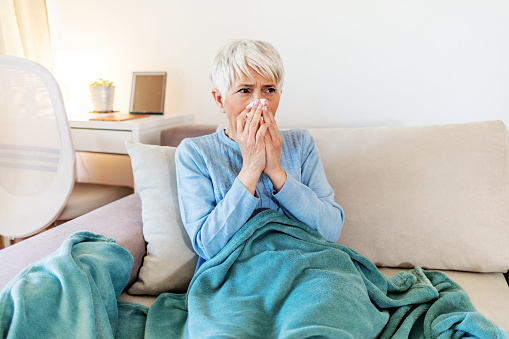Seasonal Allergies and Tips for Older Adults

Allergies seem to be prevalent year-round these days!
Seasonal allergies, also known as hay fever or allergic rhinitis, occur when the immune system overreacts to allergens like pollen, mold spores, or grasses that are more prevalent during certain times of the year—especially spring and fall. Symptoms can include sneezing, itchy or watery eyes, nasal congestion, coughing, and fatigue. For older adults, managing seasonal allergies can be more challenging due to age-related changes in the immune system and the presence of other health conditions.
Fortunately, there are some tips that can help minimize your exposure to allergens. They include staying indoors on high-pollen days, using air purifiers, keeping windows closed, and showering after spending time outside to remove allergens. It’s also important to consult with a healthcare provider before starting over-the-counter allergy medications, as some can interact with existing prescriptions or cause side effects like drowsiness or increased blood pressure. With proper management, older adults can reduce symptoms and maintain a better quality of life during allergy season.
AARP has a story offering additional ideas on ways to get relief. To read the piece, CLICK HERE.
